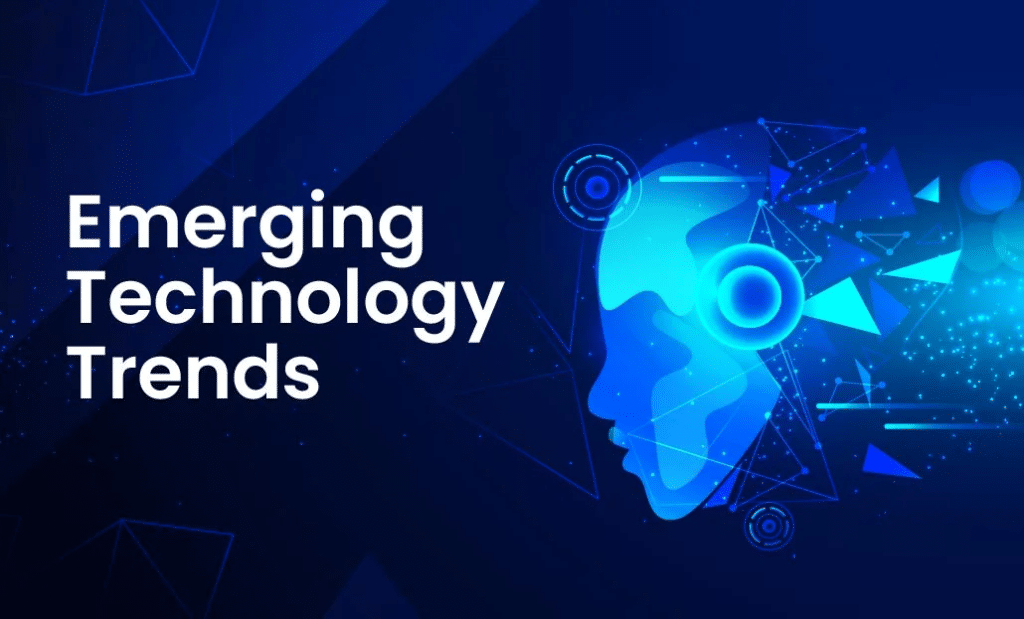Emerging technology trends in 2024

As we move closer to 2024, the landscape of emerging technological trends continues to evolve at an unprecedented pace. This overview provides insights into the most influential advancements poised to reshape industries, society, and daily life.
From artificial intelligence to decentralized networks, these advancements offer a glimpse into a future where technology integrates seamlessly into every aspect of our existence.
Technology Transformations in 2024: An Overview
Technology in 2024 is no longer about the gadgets we use but how these tools fundamentally alter our interactions, operations, and the global economy. Emerging trends signify a pivot towards more autonomous, efficient, and interconnected systems across all sectors.
Central to this shift is the exponential growth of artificial intelligence (AI), which is not only making machines smarter but also enabling them to understand and interact with the world in a more human-like manner. The impact of AI on industry delves deeper into how AI innovations are driving this change.
Another pivotal area of progress is in decentralized technologies, particularly blockchain. Once primarily known for its role in cryptocurrencies, this technology is now finding applications across a broad array of industries, showcasing its potential to secure and streamline transactions and processes.
The advancements in connectivity, led by the rollout of 5G and beyond, are enabling a new wave of internet-of-things (IoT) applications, from smart cities to health monitoring devices that promise to transform our living and working environments.
Breaking New Ground with Blockchain
Blockchain's role has evolved far beyond its cryptocurrency roots, ushering in a new era of transparency, security, and efficiency. Blockchain technology beyond cryptocurrencies explores how this technology is revolutionizing industries by enabling trustless transactions and reducing the need for intermediaries.
From supply chain management to copyright protection, blockchain is becoming an indispensable tool for ensuring integrity and transparency in digital transactions.
As we advance, the exploration of decentralized finance (DeFi) and non-fungible tokens (NFTs) highlights blockchain's capability to redefine ownership and investment in the digital age.
The Evolution of Remote Work
The outbreak of the pandemic accelerated the adoption of remote work technologies, but as we head towards 2024, these tools are becoming more sophisticated, facilitating not just remote work but remote collaboration and creativity.
The future of remote work technology examines the technologies shaping the future workplace, from virtual reality (VR) meeting spaces to AI-driven project management tools, indicating a permanent shift in how and where we work.
This trend towards digital workplaces is also prompting a reevaluation of work-life balance, as technology provides more flexibility but also blurs the lines between personal and professional life.
Ensuring cybersecurity in this increasingly digital work environment is becoming a top priority, highlighting the need for advanced security measures to protect sensitive information.
AI: The Bedrock of Future Innovations
Artificial intelligence remains at the heart of technological advancements in 2024, empowering devices and systems with improved perception, cognition, and action. These capabilities are transforming industries, from healthcare with personalized treatment plans to finance with fraud detection algorithms.
The integration of AI into daily life is also escalating, with personal assistants becoming more intuitive and home automation systems more responsive to our needs and habits.
However, with great power comes great responsibility. The ethical considerations and potential biases in AI systems are subjects of intense scrutiny, driving the importance of developing AI in a manner that is both ethical and inclusive.
Quantum Computing: A Leap into the Future
The potential of quantum computing is becoming more tangible, with advancements suggesting it could soon revolutionize fields like cryptography, materials science, and complex system simulation.
This incredibly powerful computing paradigm promises to solve problems beyond the reach of current supercomputers, offering new possibilities in drug discovery and climate modeling.
Despite its promise, significant challenges remain, from hardware stability to algorithm development, before quantum computing can become mainstream.
Augmented Reality and Virtual Reality: Merging Worlds
Augmented reality (AR) and virtual reality (VR) are set to become more prevalent in our daily lives, offering immersive experiences that blend the digital and physical worlds.
From enhancing online shopping with virtual try-ons to transforming education with interactive, 3D experiences, these technologies are paving the way for a new era of engagement and learning.
The potential for AR and VR to revolutionize entertainment is also vast, with virtual concerts, tours, and events offering new ways for people to connect and experience culture.
In conclusion, the technological landscape in 2024 is marked by a series of groundbreaking trends that promise to redefine our relationship with technology. From AI's influence on everyday life to blockchain’s role in securing digital interactions, these advancements are setting the stage for a future where technology not only solves existing challenges but opens doors to new possibilities.

Related